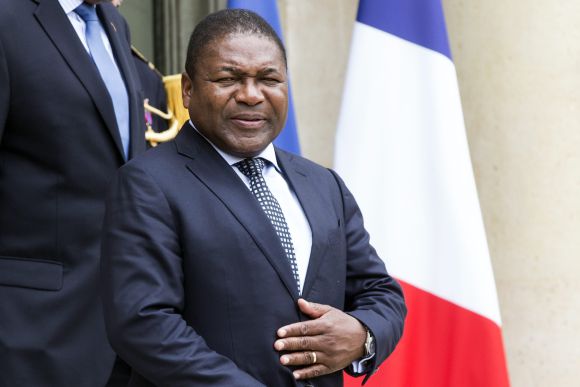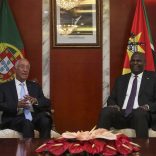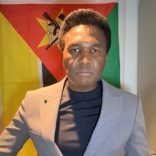Mozambique: Technical Commission's mandate includes non-partisan security forces, Constitutional ...
Mozambique: Lack of hierarchy in Renamo hinders dialogue, says Nyusi

Lusa (File) / Filipe Nyusi
Mozambican President Filipe Nyusi on Sunday deplored the lack of clarity in the hierarchical structure of Renamo, which he said was causing difficulties in the dialogue between the government and Renamo.
He was speaking at a press conference with the Mozambican journalists who had accompanied him to the African Union heads of state summit in Addis Ababa.
“Renamo is an organization where there is no sequential hierarchy”, said Nyusi. “Often you don’t know who gives orders and who doesn’t, or who is above whom. We only know that the leader is (Afonso) Dhlakama”.
“The structure of Renamo does not allow us to understand who follows whom”, he added. “There are a lot of parallel bodies. This often creates distrust within the organization itself, and is dangerous”.
In the absence of Dhlakama (who has once again withdrawn into a bush camp in the central district of Gorongosa), who should the government be talking to?, Nyusi asked.
“What do we do in his absence?”, he mused, noting that within Renamo “it’s possible that each of them thinks he’s the second or third in the hierarchy” – and this did not work in favour of dialogue with the government.
Dhlakama has not been seen in public since 9 October, when the police disarmed his bodyguards at his house in Beira. Since then he has given interviews by telephone, and held a couple of teleconferences. He is believed to be living in the Satunjira region of Gorongosa.
Renamo once had a large military base at Satunjira, from which Dhlakama organized the low level insurrection in Sofala province of 2013-14. When the armed forces (FADM) captured the main Satunjira base in October 2013, he moved to a smaller camp somewhere on the slopes of the Gorongosa mountain range.
Dhlakama has gone back to the Gorongosa bush, where he issues statements threatening to seize six central and northern provinces as from March.
Nonetheless, Nyusi pledged that the government will do all in its power “so that we can talk because we have to talk to solve the problem of the people. The people must have the country growing”.
The country, he added. “must be at peace, and must cease being held hostage by a group of people”.
If the government were to yield to Dhlakama’s demand that Renamo should govern the six provinces where he claims the party won in the October 2014 general elections (Manica, Sofala, Tete, Zambezia, Nampula and Niassa), people would say “this isn’t democracy!”, and that could give rise to further problems, Nyusi pointed out.
As for the presence of Mozambican refugees in Malawi, fleeing from clashes between Renamo gunmen and the defence and security forces, Nyusi said the Mozambican High Commissioner in Malawi is following events, and seeking clarification. “We don’t want to speak about refugees, if it’s just a case of regular migration”, he said.
Nyusi pointed out that the border between Tete province and Malawi is unclear in places, and many citizens call themselves Mozambicans or Malawians “depending on what is convenient at the time”.
Mozambicans entered Malawi, not only to escape the conflicts with Renamo, but for a variety of other reasons, including the drought in Tete.













Leave a Reply
Be the First to Comment!
You must be logged in to post a comment.
You must be logged in to post a comment.